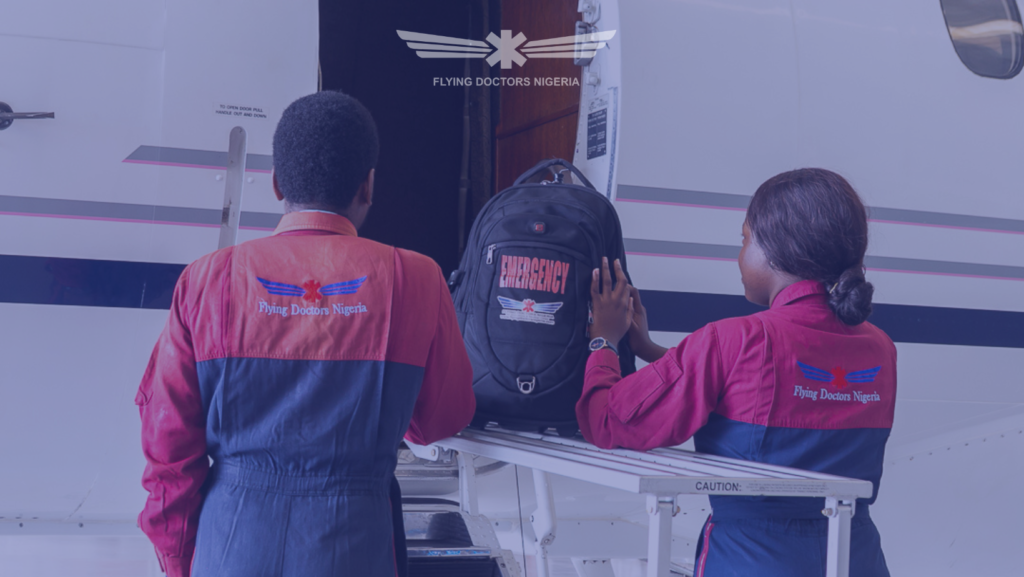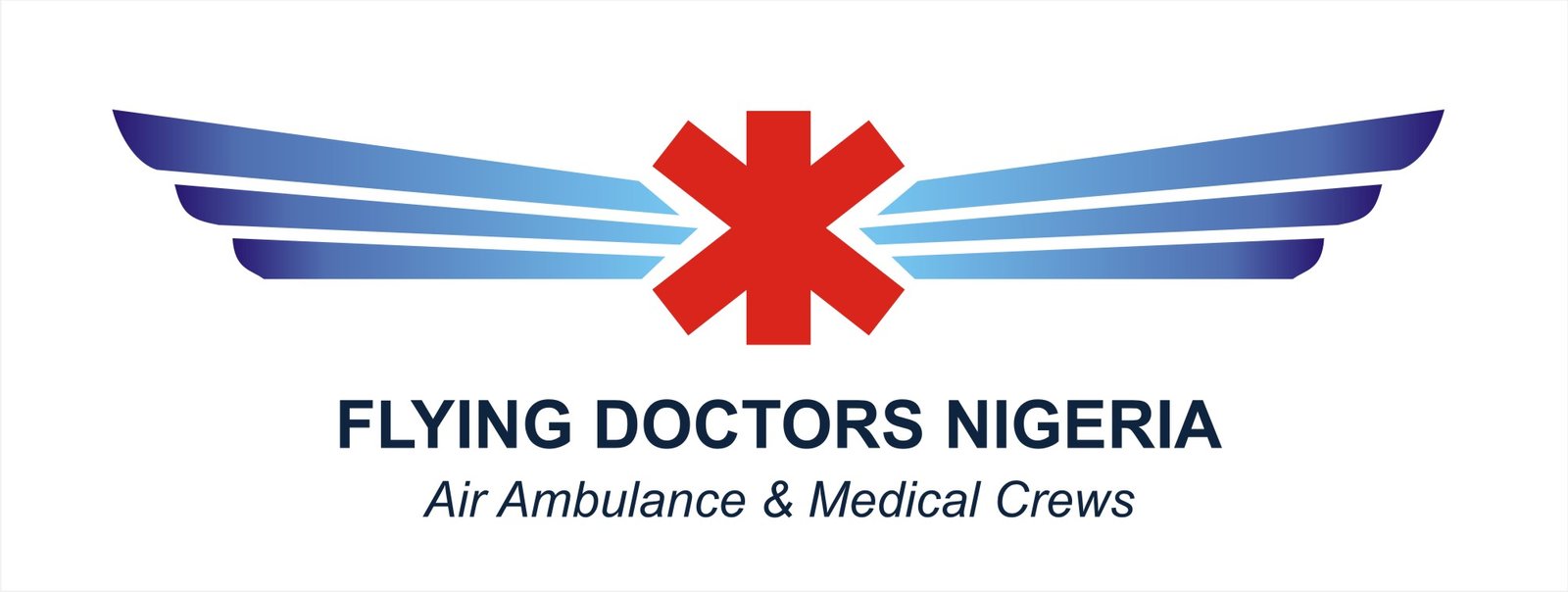
Recently, one of our international corporate partners engaged our team at Flying Doctors Nigeria to help facilitate a rapid medical transfer of their staff who suffered a work-related injury. The patient, a 42-year-old male, had been battling lumbar canal stenosis secondary to intervertebral disc herniation, compounded by failed posterior stabilization and recurrent surgical site infections.
Despite receiving extensive care in Lagos, including multiple surgical interventions, his condition had deteriorated to the point that he could no longer sit upright due to spinal instability and severe, unrelenting pain. The situation demanded an immediate specialized air ambulance evacuation to a neurosurgical and rehabilitation center in the United Kingdom.
Clinical Challenge
The patient’s journey began eight months earlier following a workplace injury that led to severe lower back pain, paraesthesia, numbness, and progressive lower limb weakness (power 4/5). Over the months, he underwent several procedures — lumbar canal decompression, wound debridement, laminectomy with pedicle screw and rod fixation, and eventual implant removal after infection set in.
Unfortunately, his recovery was complicated by persistent infection and instability. He was unable to tolerate a seated position even briefly, ruling out any form of commercial air travel, even in business class. Additional risk factors included potential deep vein thrombosis (DVT), ongoing wound management, and limited mobility. This made a dedicated air ambulance become the safest means to help ensure a well coordinated transfer.
Response and Mobilization
Within hours of receiving the request, our team deployed an ICU physician to conduct a bedside assessment. The evaluation revealed clinical stability — BP 128/80 mmHg, PR 110 bpm, RR 20 cpm, SpO₂ 98% — but confirmed the patient was unfit for commercial flight.
Following this, our Adult Neurosurgical Retrieval Protocol was activated. A dedicated air ambulance was immediately prepared and equipped with:
- Full-body spinal immobilization stretcher and pressure-relief mattress
- Portable infection control and wound care kits
- Continuous hemodynamic and neurological monitoring
- Thromboembolism prophylaxis initiated pre-flight
- Full resuscitation and pain management setup
The specialized flight team comprised an intensivist team skilled in post-operative orthopedic and spinal care. A detailed clinical and logistical plan was also coordinated between the referring hospital in Lagos, the flight crew and relevant aviation authorities to ensure a seamless transfer.
In-Flight Management
The patient was carefully transferred from his hospital bed to the aircraft stretcher, with strict spinal precautions observed throughout. Prior to take-off, the team optimized his condition through:
- Antithrombotic therapy (low-molecular-weight heparin)
- IV opioid analgesia for pain control
- Antibiotic prophylaxis and wound dressing
- IV hydration and mild sedation for comfort
During the 6.5-hour flight, the medical team maintained continuous monitoring of his vital signs, neurological status, and wound integrity.
Outcome
The evacuation was completed without complications. The patient remained hemodynamically stable and pain-free throughout the flight and was safely handed over to the neurosurgical unit in London. A comprehensive in-transit medical report, imaging, and surgical documentation were shared to ensure continuity of care.
Key Lessons
- Rapid Assessment Enables Timely Intervention: Onsite evaluation by critical care physicians ensures appropriate and safe transport decisions in complex neurosurgical cases.
- Specialized Equipment Saves Lives: Stretcher-based, immobilized air ambulances are indispensable when commercial alternatives are not viable.
- Preventive Care Reduces Risk: Early initiation of anti-thrombotic therapy significantly reduced DVT risk during prolonged immobility.
- Collaboration is Key: Seamless coordination among hospitals, aviation, and medical teams ensured uninterrupted care from Lagos to London.
Impact
This mission underscores Flying Doctors Nigeria’s expertise in adult neurosurgical air ambulances, bridging gaps in commercial aviation limitations and delivering vulnerable patients to specialized care. From neonatal HIE transfers to adult spinal emergencies, we continue to set the standard for safe, urgent global repatriation.
For more information about our Air Ambulance service, kindly contact us at: emergency@flyingdoctorsnigeria.com

